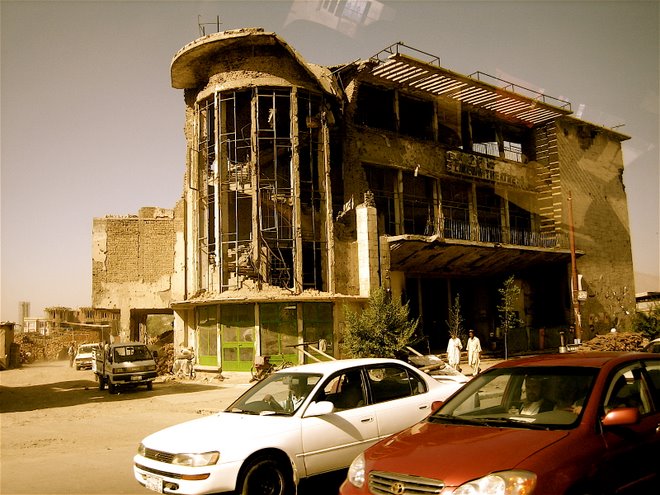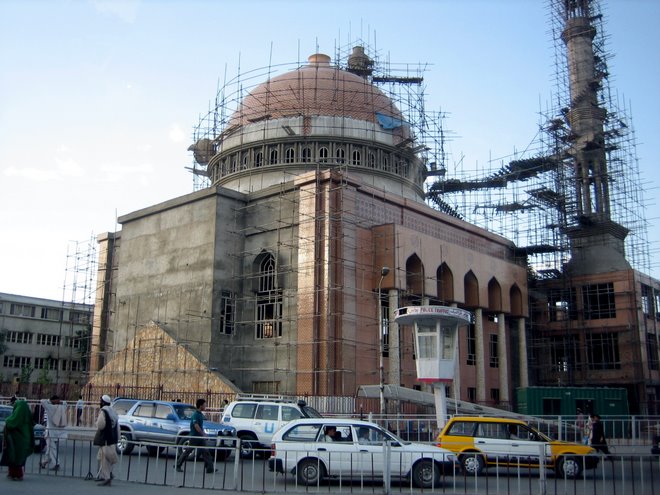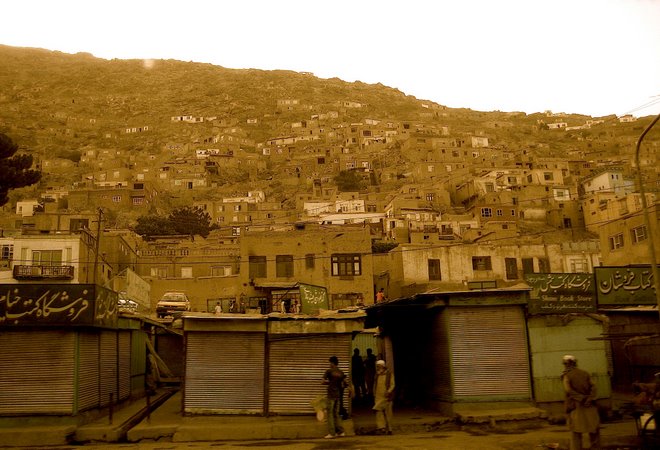We went to the university this morning at 7:45 a.m. as usual. The streets of Kabul were busy like they normally are in the early morning. A few hours into our lecture, I received a phone call from our office manager, Daud, telling me that there was another suicide attack in the center of the city. This time it was the deadliest attack since the Taliban regime was toppled in 2001, killing 35 people from the local police academy and injuring over 50 others. The bus that carried the academy's instructors and students was set ablaze during the rush hour at around 8:10 a.m.
I noticed a little commotion among our students as some of them received SMS messages from worried parents and others who heard the news. I saw many concerned faces in our classroom, including our interpreter, Dr. Jawad, who seemed unusually restless. During the morning tea break, some students came up to me to talk about what happened as if they just wanted someone from a foreign country to listen to them. Ramin and Akbar told me that they were uncertain about the future of their country. I saw both anxiety and frustration in their eyes as they described how neighboring countries and individual groups create instability within Afghanistan. I felt like that they were especially frustrated because of their inability to stop the violence and chaos that have become part of their daily life. By the end of our conversation, I found out that both Ramin and Akbar lost two of their friends in today's bomb explosion on the bus. When Akbar said that he would be the next victim of an explosion, I attempted to give him some reassurance by telling him that things were going to improve.
Stories like these are not uncommon in Afghanistan. Many families have had losses, and almost everyone has been at least internally displaced or has lived as a refugee in Iran or Pakistan. While millions still live in neighboring countries, thousands have returned to start anew. Many who returned to the country ended up in Kabul for several reasons. In addition to offering relatively more job opportunities, many believed that Kabul was a safe place in the context of Afghanistan. Unfortunately, it is not the case anymore. Increasingly, Kabul is becoming a battleground for suicide attacks and terror tactics. This uncertainty and instability create a major concern for the future.
Subscribe to:
Post Comments (Atom)





1 comment:
Good writing.
Going to universities is something boring in Kabul city due to Traffic.
========
Kabul Afghanistan
Afghanistan Photos
Post a Comment